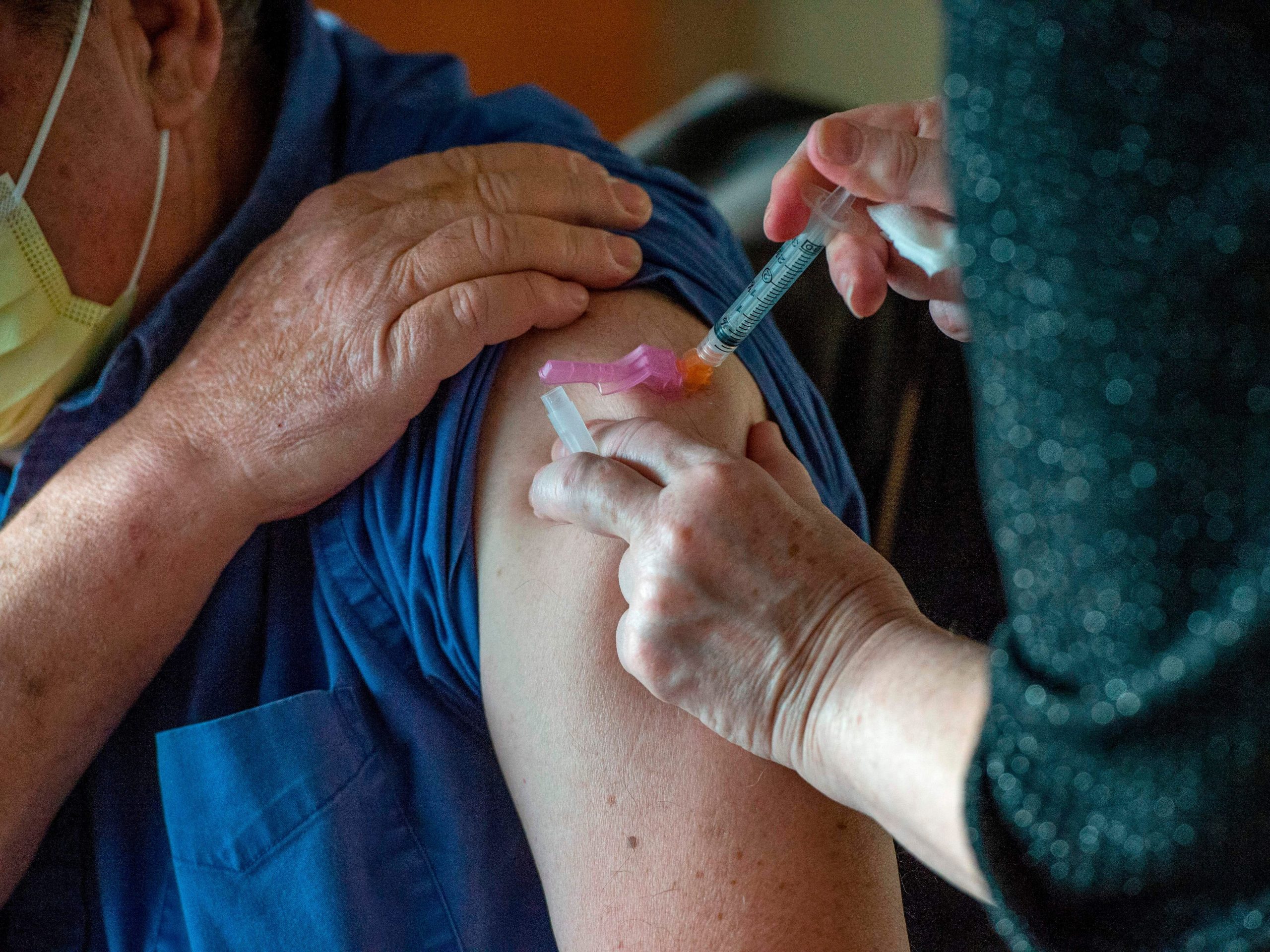
Joseph Prezioso / AFP via Getty Images
- Only about 13% of the roughly 3.26 million COVID-19 vaccine doses distributed to nursing home residents and staff in the US have been administered, according to the CDC.
- Nearly 40% of coronavirus-related deaths in the US have taken place in long-term care facilities.
- The federal government has partnered with CVS Health and Walgreens to administer vaccines to the majority of long-term care facilities.
- Visit Business Insider’s homepage for more stories.
The majority of nursing home residents in the US remain unvaccinated despite federal plans targeting one of the nation’s most vulnerable populations.
Only about 13% of over 3.26 million COVID-19 doses designated for nursing home residents and staff have been administered, according to data from the Centers for Disease Control and Prevention regarding the Federal Pharmacy Partnership for Long-Term Care Program.
About 3 million people live in nursing homes, assisted living centers, and group homes nationwide, 105,000 of which have died from the virus. Residents from long-term care facilities make up nearly 40% of coronavirus-related deaths in the US.
A communal living environment, as well as the variety of staff coming in and out of the facilities, puts residents at a greater risk of infection. The CDC and other state plans place long-term living facilities as top priority alongside healthcare workers for vaccine distribution.
The discrepancy between the doses distributed and administered at the retirement homes could be attributed to several factors, the CDC said, including reporting delays and vaccine stock management. According to the CDC, the large difference between the number of doses distributed and the number of people initiating vaccination is expected at this point in the vaccination program.
Retail pharmacies tapped to vaccinate nursing home residents and staff
In October, the Trump administration announced plans to partner with CVS Health and Walgreens to administer the Pfizer and Moderna vaccines to retirement facilities free of charge.
"Ensuring access to COVID-19 vaccines, particularly among our most vulnerable populations, will be critical to saving lives and helping our nation recover from the pandemic," said John Standley, Walgreens president in the press release, at the time.
Despite the emphasis placed on vaccinating nursing home residents in the first tier of doses, the lack of immunized residents indicates a larger issue in the highly anticipated rollout of the drugs. 60% of nursing home staff in Ohio refused to receive the vaccine, according to Governor Mike DeWine.
Read More: 5 public health experts told us what the US needs to do right now to get COVID-19 under control
Hesitancy to become vaccinated is just another issue distributors will have to combat. In a press conference, DeWine said people feared the vaccine was "too new and was rushed through the process."
Vaccine storage requirements leave big potential for waste
Once thawed, Pfizer's vaccine can be kept in a refrigerator for five days and Moderna's for 30 days. The potential for wasted doses as retirement residents and staff refuse the drug could present an opportunity for individuals who might not ordinarily qualify for the first round of immunizations.
In D.C., one citizen, David Macmillan, said he received a leftover vaccine despite not having priority as a first responder or healthcare worker. MacMillan posted about his experience on TikTok.
The US Food and Drug Administration told Politico extra doses shouldn't go to waste after reports of Pfizer vaccine doses being thrown away by pharmacists due to labeling confusion.
"Given the public-health emergency, FDA is advising that it is acceptable to use every full dose obtainable," the representative said.

